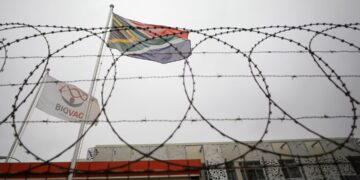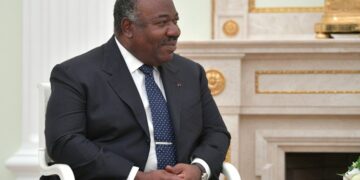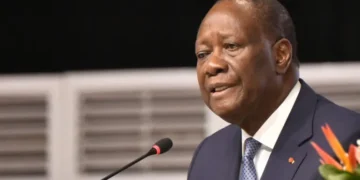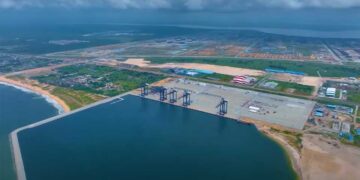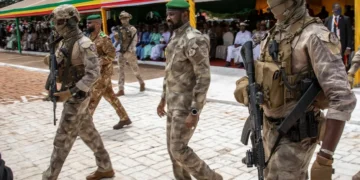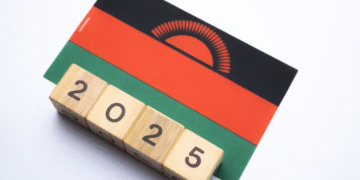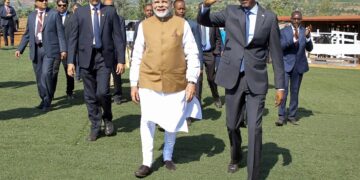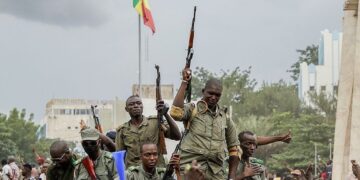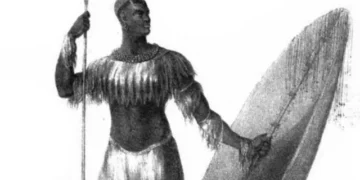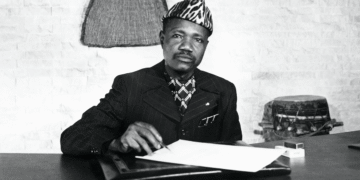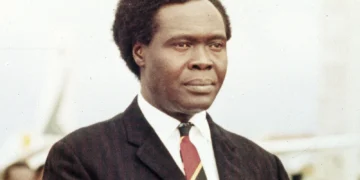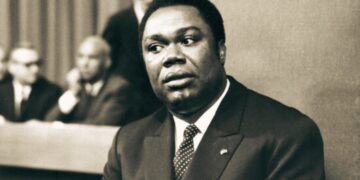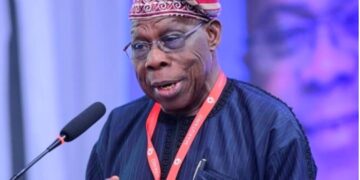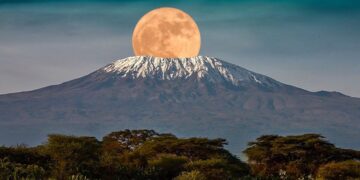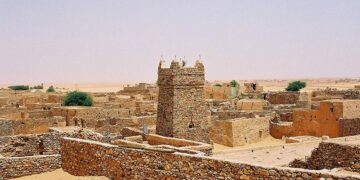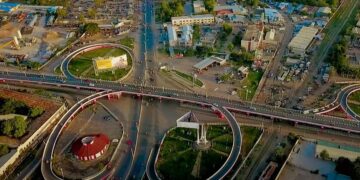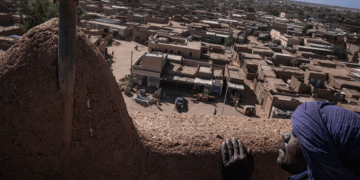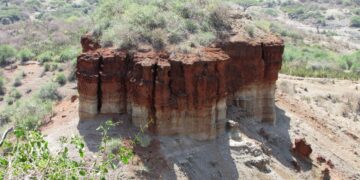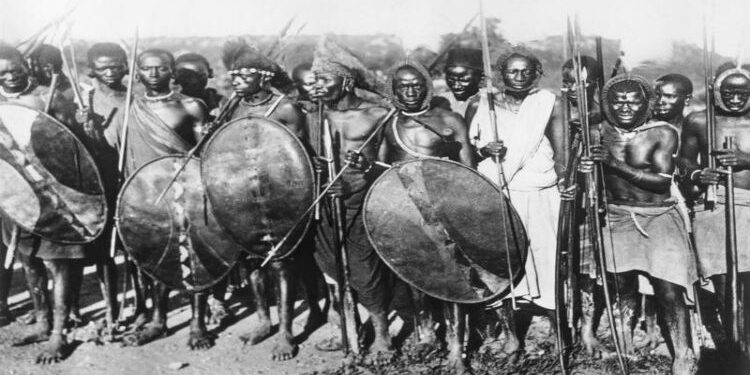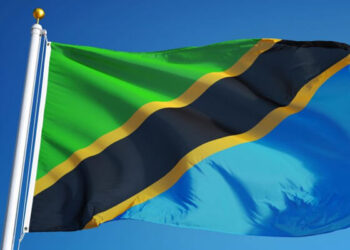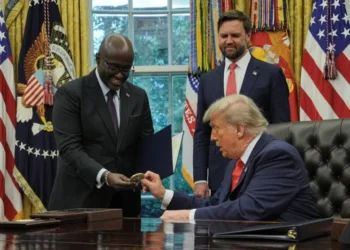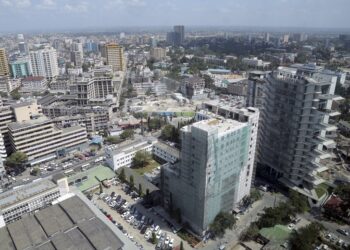By Klaus Bachmann*, & Gerhard Kemp*
Political actors in Tanzania have in recent years demanded compensation from Germany for colonial atrocities committed in the early 20th century. In early 2017, the National Assembly of Tanzania stopped short of putting the label of genocide on the atrocities committed by German troops during the Maji-Maji uprising (1905–1907).
During a visit to Tanzania recently, the German president, Frank-Walter Steinmeier, asked for “forgiveness” and expressed “shame” for the colonial atrocities committed in what was then German East Africa. This was in reference to the killing of up to 300,000 people during the Maji-Maji uprising.
German involvement in Tanzania began in 1890 when Berlin decided to take over administration of east African territories which German traders and travellers had secured. To reduce the cost of administration, governance rested on a few German officers with unchecked power, along with African and Arab fighters (called Askari) to suppress resistance.
Abuse of power was rampant in this system, which provoked rather than prevented resistance. By the end of the 19th century, German troops had brutally quashed an uprising of the Wahehe in southern Tanzania.
In 1905, the Maji-Maji uprising began as a rebellion against Arab traders and cotton plantation owners of the south-eastern coast. Usually the insurgents would first uproot the cotton plants, and then raid farmhouses or office buildings. But the raids transformed into a peasants’ revolt as the violence progressed into the interior.
The German response was brutal and catastrophic (page 265). A three-year-long mass starvation (page 274) devastated a large part of the southern territory. Entire areas were depopulated or ravaged by disease (page 274). In one location, 25% of the women became unable to fall pregnant. As many as 300,000 people were killed.
We are widely published scholars of transitional justice and international criminal justice. Our historical and legal analysis of the suppression of the Maji-Maji uprising shows that there were indeed widespread instances of war crimes committed in the conflicts between the German military and various anti-colonial groups. It also shows that German conduct in that conflict can be described as genocidal in terms of intent and impact.
There is a nuance to our finding. We could not find any genocidal directive from the imperial authorities in Berlin. But the evidence suggests that the atrocities committed against civilians were indeed intended to destroy an identifiable group in whole or in part. This is the core element of the current definition of genocide.
Finding that the violent quashing of the Maji-Maji uprising would be regarded as genocide in the legal sense doesn’t have any practical implications, such as a legal obligation to pay compensation. Today’s international law doesn’t apply to what happened then. The implications are instead political and moral: if Germany’s colonial actions were to be regarded as genocide, the German public might be open to Tanzanian compensation claims, as they were to Namibia’s.
Suppression as genocidal violence
Many of the atrocities committed during this conflict could be construed as war crimes committed by both sides. But our focus was the possibility of a genocide.
A resolution adopted by the UN General Assembly in 1946 noted that, historically,
many instances of such crimes of genocide have occurred when racial, religious, political and other groups have been destroyed, entirely or in part.
This resolution was precursor to the Genocide Convention of 1948. The convention defines the crime of genocide and serves as the basis for the prevention and punishment of genocide as a crime under international and domestic laws.
Under international law, the Genocide Convention and its progeny don’t apply to states or individuals retrospectively. These laws cannot be invoked as a basis for a legal claim against Germany for events that occurred in the early 20th century.
But characterising an atrocity as a genocide can serve as impetus for acknowledgement and some form of voluntary compensation.
The genocide question
We analysed first-hand archival records from Germany and Tanzania to examine whether German actions constitute genocide according to the Genocide Convention or the International Criminal Tribunals’ jurisprudence.
German documents and letters from the time rarely distinguished between ethnic groups and usually referred to “Negroes” (Neger) and “Blacks” (Schwarze) in a sweeping way. Racialisation didn’t indicate victimisation in itself, because some of these populations were regarded as friendly to the German colonial authorities.
One could conclude that the German authorities targeted their political (anti-colonial) opponents rather than a group that’s protected under the current definition of genocide. The protected groups are national, racial, ethnic or religious.
But a more expansive reading of genocide law leads to a different conclusion.
The first genocide conviction delivered by the International Criminal Tribunal for Rwanda was in the case of Akayesu. In this case the judges reasoned that the four protected groups should not be seen as inflexible categories. They stretched the limits to accommodate groups that have similar qualities to the groups explicitly protected.
Subsequent decisions by international criminal tribunals followed that reasoning. They took into account the way the perpetrator saw the group. A group protected by the Genocide Convention does not have to exist objectively. It is enough if it exists in the mind of the perpetrator and he wants to destroy it in whole or in part.
The “Blacks” the Germans had in mind when they wrote and spoke about their enemies did not exist as such a group. Instead they consisted of a plethora of ethnic groups, tribes and extended family clans. They had as much in common with each other as the Germans had with their colonising British neighbours in the Uganda protectorate.
But in the German officers’ minds these “Blacks” did exist as such a group. That is why they would have been protected if the Genocide Convention and the respective jurisprudence had been in force then.
This has relevance for the question of whether the German conduct during the Maji-Maji uprising was genocidal.
The lack of genocidal directives doesn’t imply a lack of genocidal intent. Circumstantial evidence suggests the German administration wanted to destroy not only hostile individual members of a racialised group, but the group in whole or in part.
The trial and appeals chambers of the International Tribunal for the former Yugoslavia accepted this kind of reasoning: the basis for establishing a perpetrator’s genocidal intent does not always have to be written evidence or witness testimony. Sometimes the perpetrator’s own behaviour allows such a conclusion.
In Srebrenica it was the policy to separate men from women and children and then to kill the men in mass executions. In a patriarchal society like the Bosnian Muslims’ the whole Muslim group would not survive without its men.
We apply a similar standard to the German conduct to eradicate the traditional leaders of the communities that took part in the Maji-Maji uprising. These communities would have perished without their leaders. In some cases, they did perish. And depriving these groups of their ability to make collective decisions and to “survive as groups” (rather than as individuals or nuclear families) was the explicit aim of the German commanders.
ـــــــــــــــــــ
* Professor of Political Science, SWPS University of Social Sciences and Humanities
* Professor of Criminal Law, University of the West of England


